Associate Professor Ketty Nez on Her Experience Teaching in Hungary Through Fulbright Award
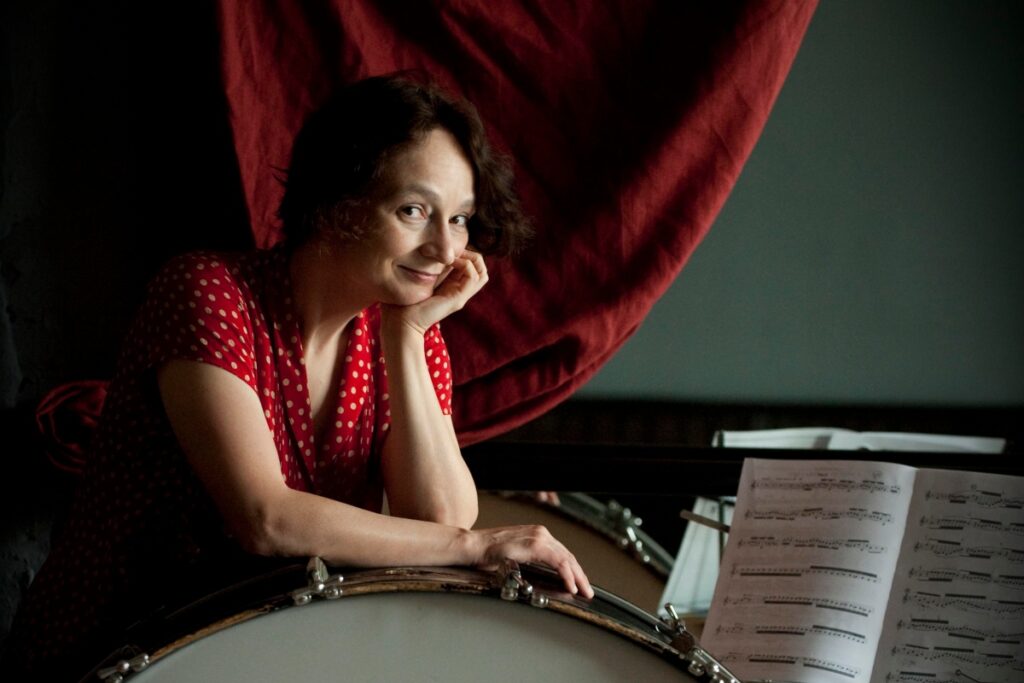
Associate Professor of Music in Composition and Music Theory Ketty Nez had the experience of a lifetime teaching contemporary orchestration and musical analysis to advanced composers at the Liszt Academy of Music in Budapest, Hungary. And this was just one of many things that made Ketty’s Fulbright Award memorable. The Composer/Pianist, who has been teaching at BU since 2005, shares what her time was like in Hungary and what she’s brought back to the States to apply to her teachings.
Q&A with Ketty Nez
What inspired you to apply for a Fulbright Award?
I met flutist Gergely Ittzés when he himself was on a Fulbright teaching at the BU School of Music during the spring semester of 2017. We ended up recording some of my music together and performing. Since I am so interested in the folk music of Hungary and surrounding regions, which I use in my own music (my family is Macedonian/Slovenian), Gergely suggested I apply for a Fulbright myself in Hungary, which really took me by surprise. I naively had thought Fulbrights were only for students, or people with a lot of free time… I didn’t know that faculty and other advanced professionals could also apply.
How long were you in Hungary?
Four months, from September through December 2021. I so wished to have been able to stay longer, like most of the other Fulbright scholars who started at the same time I did last fall in Hungary, but Fulbrights for teachers are only one semester long. Alas!
During your time in Hungary, what did you teach? And where?
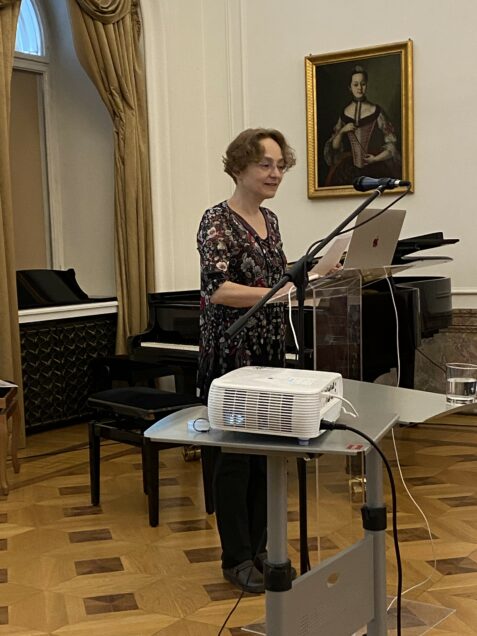
I taught advanced composers at the Liszt Academy of Music in Budapest, in courses on contemporary orchestration and musical analysis. The students were at an extremely high level, as the Academy is infamously competitive to get into, and the high school training for music in general, in Hungary, is already nearly equal to an undergraduate degree in the States. This was my first opportunity to teach such experienced professionals, and our exchanges were really lively. I purposefully exposed students to American approaches to teaching, including online course platforms, and they in turn informed me of practices in higher education in Hungary. (For example, students typically don’t speak in class, but I immediately established the class discussion was the norm!) I still continue to keep in touch with several, who send me their latest music.
As a guest teacher for one day, I also coached mini-opera projects for students at the Academy of Music in Ljubljana, Slovenia. These were collaborations between students in theatre and music. Their insights were striking and fresh, and gave me some insights into cultural attitudes, as I also teach the same course on writing opera and opera libretti here at the School of Music. The composer/librettist pairs mixed references to Greek mythology and other literature to reflect on their current situation with the political upheavals due to COVID and reflect on anxiety about where one fits in such a tumultuous world. I can well imagine their opera projects starting to morph now to reflect the current situation in Ukraine.
Did you engage in any collaborative research opportunities and/or professional projects?
I worked with musicians in presenting my folk-based music for a lecture/recital at the Bartók Archives of the Institute for Musicology of the Hungarian Academy of Sciences. The Hungarian violinist I worked with, Máté Vizeli, was trained and active in both folk performance and classical music and shared fantastic insights into performing my music with folk-styled improvisation and inflections.
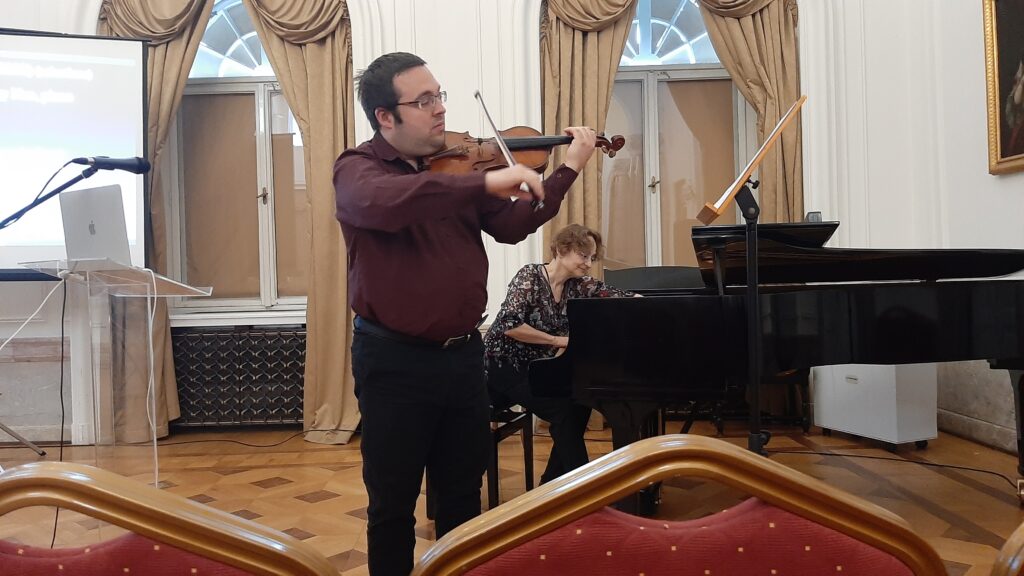
As part of a group of Fulbright artists at the Liszt Academy last fall, I helped coordinate a concert for all of us at the school. The American Fulbright violinist I performed with, Daniel Sender, also joined me in a meeting with esteemed composer György Kurtág; and we both found this experience exceptional: after talking with Kurtág about his music and ideas, he spied Daniel’s violin, and asked us to play.
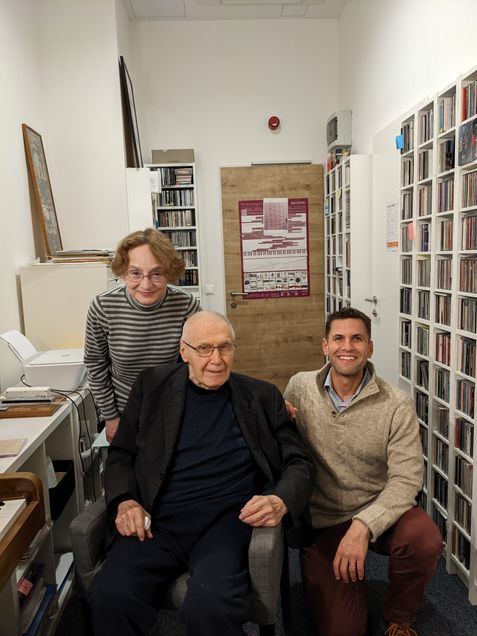
We did so, my piece Postcards from the 1930s for violin and piano, and Kurtág wanted to hear and see everything, including the recordings of the folk musicians collected in the 1930s and the poetry in the original Bosnian and Herzegovinan languages. The recordings of folk singers had been transcribed in the 1940s by Béla Bártok, composer and ethnomusicologist when he moved to America to escape the war in Europe (the recordings are now part of the Milman Parry Collection of Oral Literature at Harvard); this fact was an exciting discovery to Kurtág, who at age 96 knows just about everything there is of contemporary music. (Bártok is a huge influence on Hungarian and 20th-century art music culture.)
What were some of the highlights of this experience?
Meeting Kurtág was definitely a highlight!
What are some things you have learned from this opportunity that you’ve brought back with you and have implemented in your role as a professor?
Some of the new music I discovered over there I’m now using in courses here, and I invited five of the prominent young composers to give talks to the students here at the School of Music, via Zoom, at our weekly department fora.
What was the culture like? Did you get to do any traveling? Try new cuisines? Learn about Hungarian traditions/history?
Growing up in a Slavic household, I found some aspects of Hungarian culture familiar, and some surprisingly different, including the role of individuals in society and what individual freedoms mean. Though I met many people, we mostly talked about music and art. The political climate there is charged with all the changes going on in Europe and Hungary’s unique position; since I’m a kind of quiet person, I mainly avoided heated discussions. How they see American culture and society is complex and nuanced, one inevitably starts to view one’s home culture in different ways, so that coming back involved a reverse culture shock. The Fulbright Commission organized trips to neighboring cities, to explore some of the history of the country, which is rich and layered, starting from Roman times onwards with a number of different cultures invading and occupying at various periods in history. Budapest itself is a piece of living art – the variety of graceful architecture and the sheer number of sculptures that you bump into everywhere you walk are really stunning and surprising, and history is everywhere (with placards that tell you the details). I did a lot of walking at different times of day and night, to get a sense of how the city lives and breathes, and was happy to be able to see a change of seasons, from summer to fall.
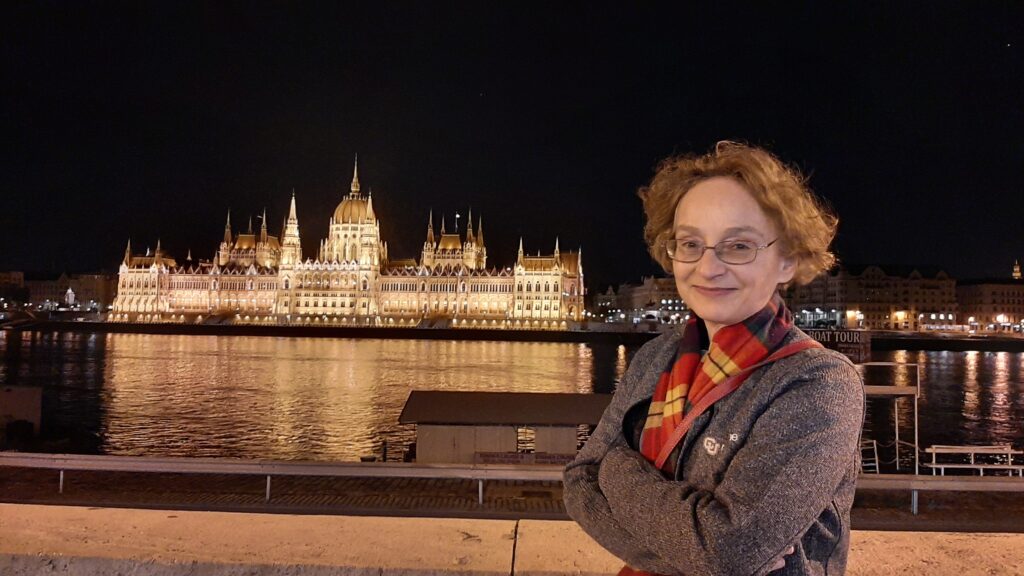
Any advice for fellow academic colleagues considering applying for a Fulbright Award?
Just go for it! It’s a rich experience you’ll never be able to entirely predict, and the opportunity to work with colleagues in other cultures is invaluable.
Now that we’ve entered the 150th anniversary of the School of Music, what makes you proud to be a part of SOM (and BU in general)?
I’m very proud to be part of the 150th year, as our School looks back on its heritage and projects forward into a new era. Having taught here since 2005, I’ve taught several generations of students, now successful professionals defining and changing in their fields. Hearing from former students is one of the best things, for me as a teacher.
For more on Ketty, visit people.bu.edu/knez/index.html.